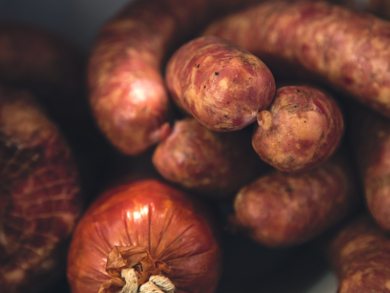Animal lipids in dry-fermented sausages, such as the Bulgarian sudjuk, have a tendency to be oxidized by air during processing and storage. The oxidation is responsible for the reduction of the sausages’ nutritional value, as it destroys biologically active compounds in the meat. It also results in the accumulation of toxic and carcinogenic substances such as hydroperoxides, radicals, and epoxides.
Stefan G. Dragoev and colleagues, University of Food Technologies, Plovdiv, Bulgaria, replaced black pepper and cumin with equivalent parts of their tetrafluoroethane essential oil extracts. The team found a significant decrease in the rate of lipolysis and lipid peroxidation during processing and storage at 0–4 °C. The addition of natural antioxidants, such as dihydroquercitin or rosemary powder extract and the synthetic antioxidant butylated hydroxytoluene (BHT) shows a similar but less pronounced effect.
Chemical analysis showed that that the spice extracts contain high amounts of antioxidant substances. In pepper, the major inhibitor of lipid peroxidation is piperine. Cumin essential oil extract also contains antioxidants such as caffeic acid.
- Antioxidant Capacity of Essential Oil Spice Extracts versus Ground Spices and Addition of Antioxidants in Bulgarian Type Dry-Fermented Sausages,
Stefan G. Dragoev, Dessislav K. Balev, Nenko St. Nenov, Kiril P. Vassilev, Dessislava B. Vlahova-Vangelova,
Eur. J. Lipid Sci. Technol. 2016.
DOI: 10.1002/ejlt.201500445




